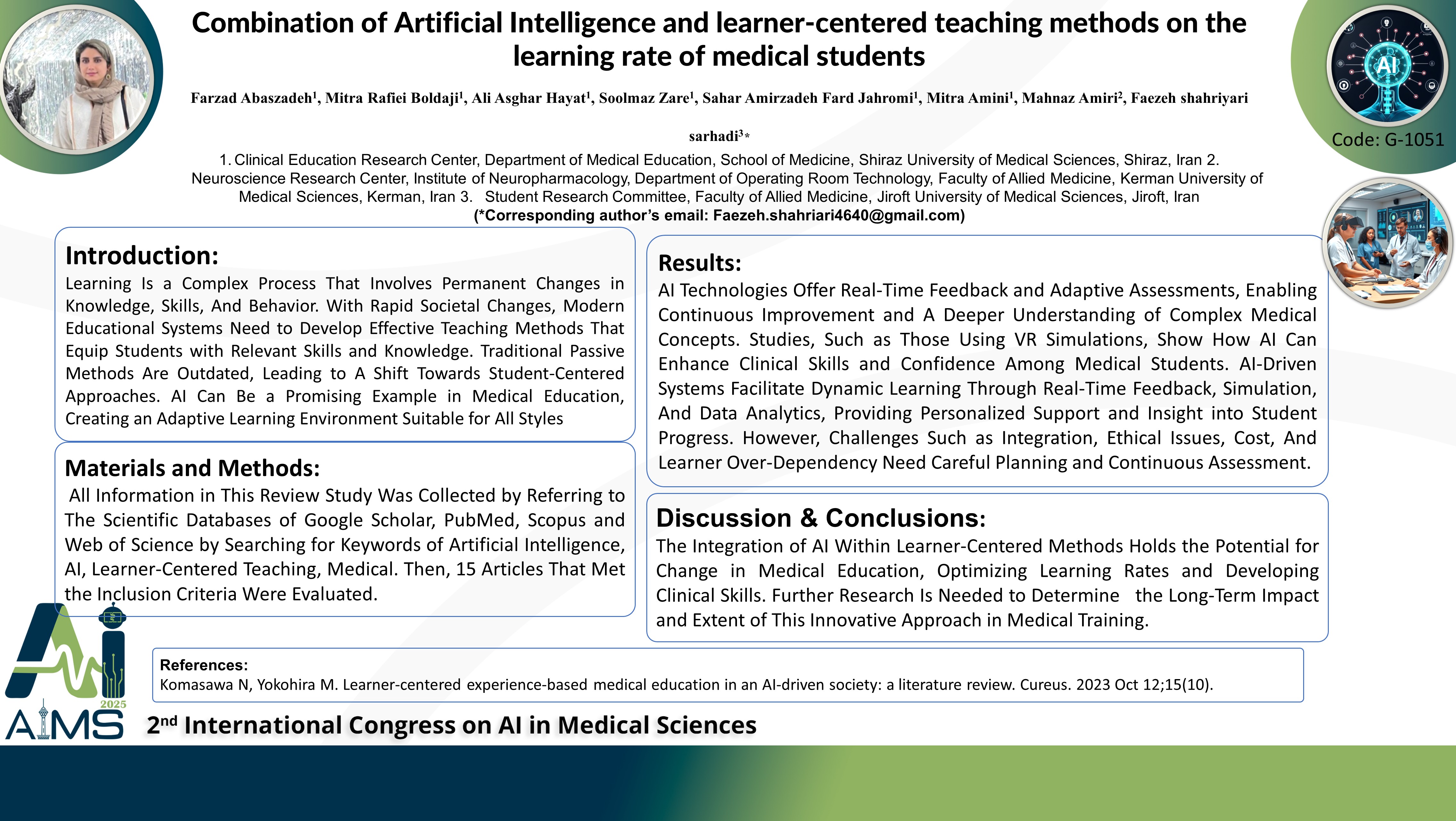Combination of Artificial Intelligence and learner-centered teaching methods on the learning rate of medical students
Code: G-1051
Authors: Farzad Abaszadeh, Mitra Rafiei Boldaji, AliAsghar Hayat, Soolmaz Zare, Sahar Amirzadeh Fard Jahromi, Mitra Amini , Mahnaz Amiri, Faezeh Shahriyari Sarhadi * ℗
Schedule: Not Scheduled!
Tag: Intelligent Virtual Assistant
Download: Download Poster
Abstract:
Abstract
Background and aims: Learning is a complex process that involves permanent changes in knowledge, skills, and behavior. With rapid societal changes, modern educational systems need to develop effective teaching methods that equip students with relevant skills and knowledge. Traditional passive methods are outdated, leading to a shift towards student-centered approaches. AI can be a promising example in medical education, creating an adaptive learning environment suitable for all styles. Method: All information in this review study was collected by referring to the scientific databases of Google Scholar, PubMed, Scopus and Web of science by searching for keywords of artificial intelligence, AI, learner-centered teaching, medical. Then, 15 articles that met the inclusion criteria were evaluated. Results: AI technologies offer real-time feedback and adaptive assessments, enabling continuous improvement and a deeper understanding of complex medical concepts. Studies, such as those using VR simulations, show how AI can enhance clinical skills and confidence among medical students. AI-driven systems facilitate dynamic learning through real-time feedback, simulation, and data analytics, providing personalized support and insight into student progress. However, challenges such as integration, ethical issues, cost, and learner over-dependency need careful planning and continuous assessment. Conclusion: The integration of AI within learner-centered methods holds the potential for change in medical education, optimizing learning rates and developing clinical skills. Further research is needed to determine the long-term impact and extent of this innovative approach in medical training.
Keywords
Artificial Intelligence, AI, Learner-Centered Teaching, Medical
